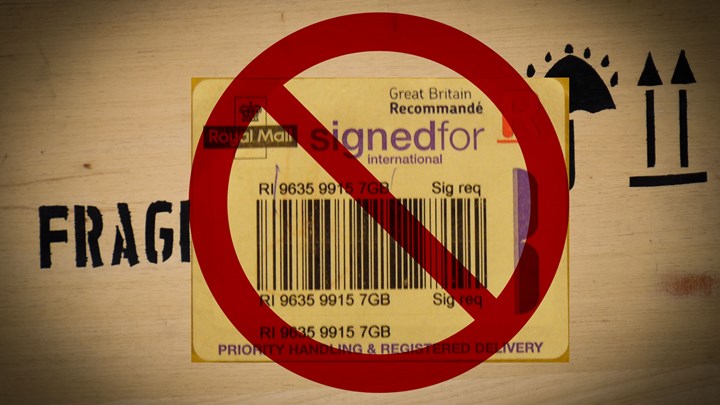
by Brian McCombie - Friday, July 21, 2023

On June 16, 2023, the British House of Lords had what is termed a “second reading” of the Hunting Trophies (Import Prohibition) Act 2023, a proposed law which would stop hunters in that nation from bringing back taxidermy mounts of numerous wildlife species across the globe. The second reading was “unopposed,”meaning it will go forward in the legislative process, possibly leading to full implementation under English law.
The bill, which covers hundreds of wildlife species worldwide, had already been fully approved by the British House of Commons earlier this year. However, hunting and wildlife conservation groups, including the National Rifle Association and Safari Club International (SCI), argue that such a law would reduce legal, regulated, scientifically based hunting—principally in Africa, though any wildlife species listed would be prohibited no matter where it originated. Likewise, implementation of the bill could threaten numerous ongoing wildlife conservation efforts at work across the African continent and harm many local communities that rely on hunting and hunters’ dollars for income and sustenance. If it goes through, the bill will ban the import of taxidermy, hides and antlers of hundreds of wildlife species, including elephants, lions and rhinoceroses. The reasons given for the ban include the protection of endangered species.
However, while some legitimately endangered species are included, the act covers hundreds of species that are not at risk. Representatives from a number of African nations have pointed out, repeatedly, that hunting in their countries is regulated and controlled to allow these wildlife species to flourish for these nations and their citizens.
Prior to the reading by the House of Lords, the British newspaper the Daily Mail reported “the high commissioners of Botswana, Namibia, South Africa, Tanzania, Zambia and Zimbabwe warned the legislation might not discourage hunting. They also argued it would instead remove incentives for locals to protect animals from poachers”—a fact regularly noted by this NRA Hunters’ Leadership Forum website.
As far back as 2018, the NRAHLF.org article “Why Hunters Are Critical to Reducing Wildlife Crime” by wildlife researcher Catherine Semcer highlights how it is hunters who provide local communities with the “economic incentives to support conservation and deter wildlife crime.” She specifically tracks how sustainable use—including hunting operations—plays a critical role in conserving wildlife by creating economic as well as political conditions that discourage poaching and illicit wildlife trafficking.
Yet this trophy ban legislation has been in the works for several years, pushed by British animal rights extremist groups and a number of the country’s politicians. Fortunately, as with the NRA Institute for Legislative Action, groups like SCI are also monitoring the issue. A recent SCI press release explains, “Ham-fisted, blanket import bans like the one just proposed in the U.K. do not solve, but rather exacerbate, the most pressing conservation problems such as poaching, loss of biodiversity, and natural habitat degradation. The inevitable result [of the act] is wildlife population decline.”
Researchers from around the globe, including in Africa, continue to underscore that there is not one example of a species being driven to extinction due to hunting. Another NRAHLF.org article by Semcer titled “Why Touting Misinformation about Hunting is Wrong” explains that the International Union for the Conservation of Nature’s (IUCN) Red List does not cite hunting as a key threat in driving any listed species toward extinction. Yet the anti-hunting Humane Society International (HSI) says that when it comes to the top 20 species imported by American hunters, it is hunting that is causing their decline.
To the contrary, “The IUCN specifically identifies hunting as a positive instrument in four of the 20 species’ conservation,” explains Semcer. This was made clear in another NRAHLF.org article by Phil Phillips covering a 2016 IUCN report touting that hunting is good for conservation.
The positive news? The act is not a done deal. The Hunting Trophies (Import Prohibition) Act 2023 has several more stages to go through, including three different steps in the House of Lords, before it officially can be ratified. For more good news, as also shared in SCI’s press release, the majority of those in the House of Lords who spoke about the bill during the second reading spoke against it, citing the negative impacts on conservation and local African economies that the act could create.
The hope is that some members of the House of Lords can add a “conservation exception” to the act. Such an exception would allow legally hunted game to be imported into Great Britian if the hunting of that particular species is shown to have a demonstrable conservation benefit.
NRAHLF.org will continue to monitor this issue as well as other proposed legislation both here and abroad that could negatively impact hunting and wildlife conservation. In the meantime, for more background on this topic, please check out the following story links:
E-mail your comments/questions about this site to:
[email protected]
Proudly supported by The NRA Foundation and Friends of NRA fundraising.
